Although wood is a valuable and highly reusable natural resource, substantial volumes are disposed of in landfills owing to a lack of effective recycling channels. Woodrite is a social enterprise founded in 2013. It cherishes wood and things from the past. The company has been maximizing the usability of recycled wood, disposed furniture, and floor boards by transforming them into useful and beautiful objects. It is not only giving “second lives” to old wood, but also keeping the craftsmanship of Hong Kong carpenters alive.
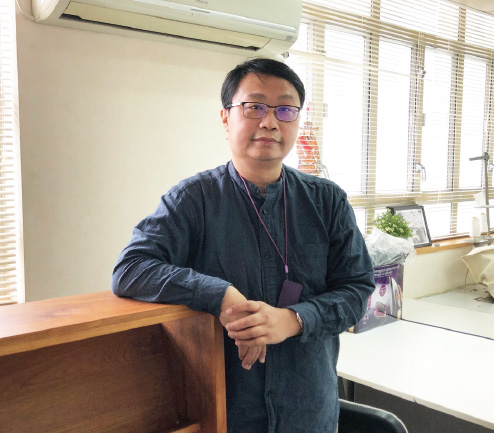
According to the Environmental Protection Department document Monitoring of Solid Waste in Hong Kong 2020, the domestic waste, commercial and industrial (C&I) waste of Hong Kong amounts to 10,809 tonnes per day, of which 3.2%, or 345 tonnes, was wood, which was an incredible amount. Demands for recycling can be invoked if it is used properly. Orca Law used to work in the finance industry. He met Woodrite by chance in 2018 and accepted the company’s invitation to take charge of its operation. He has been making strides on the road of wood recycling.
A strong brand built with recycled wood
 Woodrite works on the upscaling and refurbishing of reclaimed old wood, transforming it into wooden furniture products. The entire process – from design, production to assembly – happens at Woodrite. Their products have successfully attracted custom-built orders from commercial and residential customers. Law said that they had worked with many sizeable shopping centers or organizations, including Hysan Place, The Mills, Metroplaza, Lee Theatre, Lai Chi Wo conservation projects, etc. The company has reached breakeven and has been self-sufficient since 2016.
Woodrite works on the upscaling and refurbishing of reclaimed old wood, transforming it into wooden furniture products. The entire process – from design, production to assembly – happens at Woodrite. Their products have successfully attracted custom-built orders from commercial and residential customers. Law said that they had worked with many sizeable shopping centers or organizations, including Hysan Place, The Mills, Metroplaza, Lee Theatre, Lai Chi Wo conservation projects, etc. The company has reached breakeven and has been self-sufficient since 2016.
“Some of our clients are emigrated Hong Kong residents. We have been asked to refurbish old wood items, such as a rocking chair, which belonged to a deceased relative. By upcycling the item, our clients could remember their loved ones. We too think such love deserves to be passed on and cherished.”
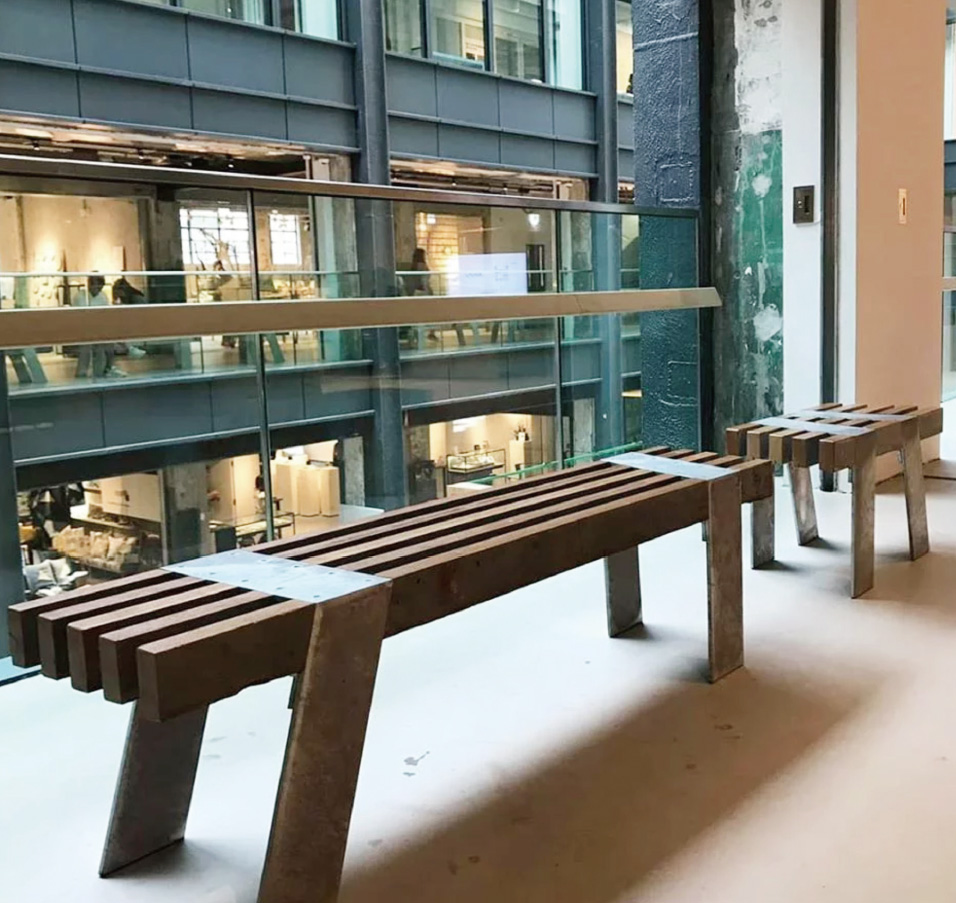
Transforming old wood into stunning objects
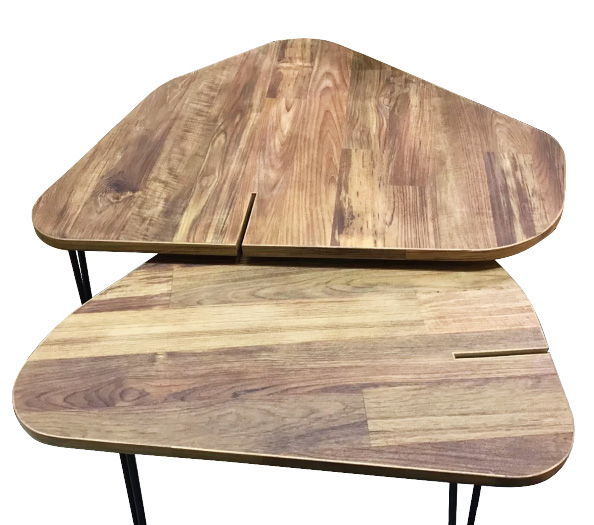 Woodrite mainly recycles hardwood such as teak because of its fat contents, which make the wood water-resistant, damp-proof, and impervious to infestation. Hardwood is also free from formaldehyde. As many buildings in Hong Kong were made of teak, there is a large supply of disposed wood. The company once collected as many as 100 to 200 pallets of such wood a year.
Woodrite mainly recycles hardwood such as teak because of its fat contents, which make the wood water-resistant, damp-proof, and impervious to infestation. Hardwood is also free from formaldehyde. As many buildings in Hong Kong were made of teak, there is a large supply of disposed wood. The company once collected as many as 100 to 200 pallets of such wood a year.
Regarding the recycling of disposed wood, when a request is received from a person or an organization, Woodrite would first arrange a site visit by carpenters. The volume of required wood will be calculated based on the clients’ project, such that wood is recycled on an “as-needed” basis. This could save unnecessary venue and transportation costs.
As for the upcycling of wood, the designs must be carefully considered to minimize unnecessary accessories and other materials. This would on one hand maintain the rustic looks of wood and, on the other, minimize the environmental impact to our beloved Earth throughout the product’s life cycle. “The grains of wood are unique. We can use this to create different patterns and make wooden tables, counters, seats, shelves, doors and other products that are truly one of their kinds.”
Passing on local craftsmanship
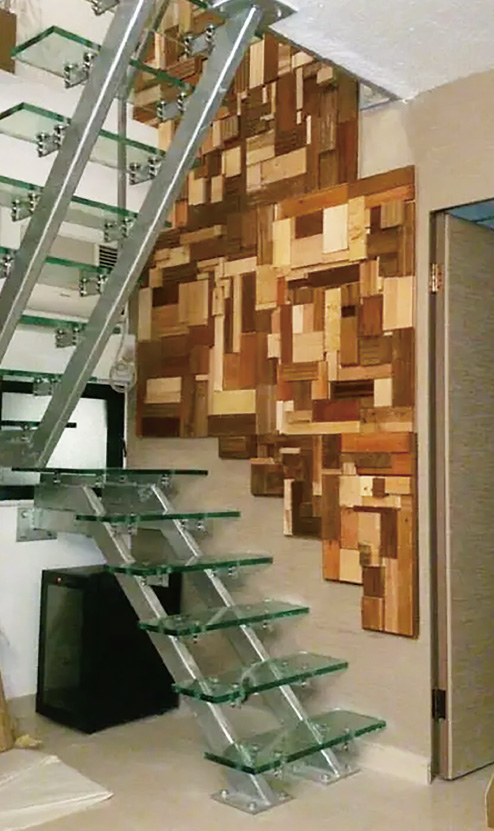
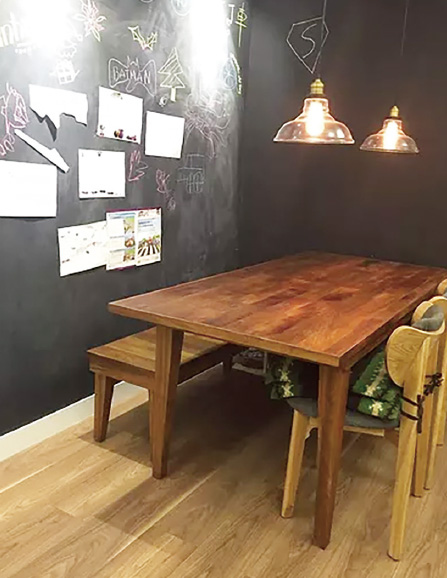 Law hopes to contribute to passing on the craftsmanship of local carpenters by recycling. He also looks forward to incorporating technology elements to the recycling process, so that users will find the experience more creative and memorable.
Law hopes to contribute to passing on the craftsmanship of local carpenters by recycling. He also looks forward to incorporating technology elements to the recycling process, so that users will find the experience more creative and memorable.
“Recycling cannot be rushed. We need persistent promotion by the government, the industry and the general public, so that it becomes part of our day-to-day life. Our community is increasingly eco-minded. We are glad to see that many companies are taking an active role to consider various environmental conservation projects and initiatives, so that the public can truly feel the possibilities and innovation of going green.”
He added that the government has set out certain funding schemes to support social enterprises. In addition to receiving up to HKD3 million over three years’ time, eligible social enterprises also enjoy tax exemption. Law believes that such funding support can provide operators with a development buffer period, during which they can explore the blueprints and study the market’s demand for their products and services. For those who are interested to join the sector, he suggests clearly define the principal strengths of their products, identify a consistent goal, and delve deep in their development. By adjusting and optimizing the products or services for the market, social enterprises can refrain from relying too much on funding support and seek long-term growth.




